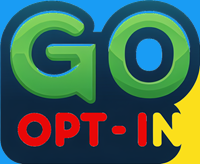In today’s hyper-competitive business landscape, effective lead generation is pivotal to sustainable growth and success.
As organizations strive to connect with their target audiences, the ability to attract, engage, and convert potential customers has become a defining factor in achieving market leadership.
“Lead Generation Mastery Boost Your Business Growth” delves into the innovative strategies and best practices that empower businesses to harness the full potential of lead generation.
This article will explore the critical components of a successful lead generation framework, from understanding your ideal customer profile to leveraging data-driven insights for personalized outreach.
We will also examine the role of cutting-edge technology and automation tools that streamline lead management processes, ensuring that your marketing efforts yield maximum returns.
By mastering lead generation, businesses can build a robust sales pipeline, foster meaningful customer relationships, and ultimately drive revenue growth.
Whether you are a small startup or an established enterprise, the insights shared in this article will equip you with actionable strategies to refine your lead generation efforts, optimize your marketing campaigns, and position your organization for long-term success in an ever-evolving market landscape.
Join us as we unlock the secrets to LeadCreator lead generation mastery.
Table of Contents Lead Generation Mastery Boost Your Business Growth
Understanding Lead Generation Fundamentals for Success
Effective lead generation is essential for any business aiming to thrive in a competitive marketplace.
It involves identifying and attracting potential customers who are genuinely interested in the products or services offered.
By leveraging a combination of strategic marketing techniques such as content marketing, SEO, social media engagement, and targeted advertising, businesses can not only reach a wider audience but also nurture relationships that convert leads into loyal clients.
The key lies in creating valuable content and tailored experiences that resonate with the target demographic, ultimately driving engagement and fostering trust.
Moreover, successful lead generation requires a deep understanding of the customer journey, from awareness to consideration and decision-making.
This process involves analyzing customer behavior, preferences, and pain points to create personalized outreach strategies.
Utilizing data analytics and customer relationship management (CRM) tools can significantly enhance the ability to track leads, optimize marketing efforts, and measure success.
By focusing on building a robust pipeline of qualified leads, organizations can ensure sustainable growth and profitability while adapting to the ever-evolving demands of their audience.
Identifying Your Target Audience Effectively
To effectively connect with potential customers, it is crucial to define and understand the target audience.
This involves conducting thorough market research to identify demographics such as age, gender, location, and income level, as well as psychographics like interests, values, and buying behaviors.
By segmenting the audience into distinct groups, businesses can tailor their messaging and marketing efforts to address the unique needs and preferences of each segment, thereby increasing the likelihood of engagement and conversion.
In addition to demographic and psychographic profiling, leveraging tools such as surveys, social media analytics, and customer feedback can provide deeper insights into the audience’s motivations and pain points.
These insights enable businesses to craft relevant content and select appropriate channels for communication, ensuring that their marketing messages not only reach the intended audience but resonate on a personal level.
By continuously refining the understanding of the target audience, companies can adapt their strategies to stay aligned with evolving trends and consumer expectations, ultimately driving sustained growth and success.
Crafting Compelling Offers That Convert
Creating offers that resonate with your audience requires a deep understanding of their needs and desires.
By emphasizing value and addressing specific pain points, businesses can design incentives that not only attract attention but also drive action.
This could involve limited-time discounts, exclusive access to services, or value-added bundles that enhance the perceived worth of the offering.
Highlighting the benefits and unique selling propositions in a clear and compelling manner helps to differentiate your offer from competitors, fostering a sense of urgency and encouraging potential customers to take the next step.
Moreover, incorporating social proof, such as testimonials, case studies, and user-generated content, can further enhance the appeal of the offer.
Prospective buyers are often influenced by the experiences of others, and showcasing positive feedback builds trust and credibility.
Additionally, effective call-to-action strategies should guide potential customers toward the desired response, whether it be making a purchase, signing up for a newsletter, or requesting more information.
Ultimately, the combination of a well-crafted offer and strategic marketing tactics creates an environment conducive to conversion, setting the stage for sustainable business growth.
Utilizing Social Media for Lead Generation
Leveraging social media as a platform for lead generation involves a strategic approach that prioritizes engagement and community building.
By creating compelling content that resonates with users, businesses can foster meaningful interactions that drive interest and inquiries.
Sharing valuable insights, industry news, and engaging multimedia can capture the attention of potential leads, encouraging them to follow the brand and participate in conversations.
Paid advertising on social media can further amplify reach, allowing businesses to target specific demographics and interests, ensuring that messages reach users who are most likely to convert.
Additionally, utilizing social media analytics tools enables businesses to track engagement metrics and understand audience behavior.
This data-driven approach allows for continuous refinement of marketing strategies, ensuring content remains relevant and impactful.
By actively engaging with followers through comments, direct messages, and interactive posts, companies can build relationships that transition into leads.
Implementing consistent branding and messaging across platforms also reinforces identity, making it easier for potential customers to recognize and remember the brand in a crowded marketplace.
Building Relationships Through Email Marketing
Email marketing serves as a powerful tool for nurturing and building relationships with potential and existing customers.
By delivering personalized content directly to an individual’s inbox, businesses can create a sense of connection that fosters trust and loyalty.
Tailoring messages based on customer preferences, behaviors, and purchase history allows for a more engaging experience that resonates with the audience, encouraging them to take meaningful actions.
Regularly sharing valuable insights, updates, and exclusive offers not only keeps the brand top-of-mind but also establishes a narrative that customers feel connected to over time.
Furthermore, effective email marketing emphasizes two-way communication, inviting subscribers to share their feedback or engage in discussions.
This interaction not only enhances the customer experience but also provides businesses with invaluable insights into their audience’s needs and preferences.
By treating email correspondence as a dialogue rather than a monologue, brands can strengthen relationships, leading to increased customer retention and higher conversion rates.
Through consistent and thoughtful email engagement, organizations cultivate long-lasting relationships that contribute to sustainable growth.
Optimizing Landing Pages for Higher Conversions
A well-structured landing page is essential for converting visitors into customers.
Key elements such as a compelling headline, persuasive copy, and strong calls to action must be carefully crafted to resonate with the target audience.
Visual hierarchy plays a significant role; important information should be easily accessible and presented in a way that guides visitors toward taking the desired action.
Incorporating social proof, such as testimonials and case studies, can also enhance credibility and encourage conversions, as potential customers often seek validation from others before committing.
Moreover, optimizing landing pages for mobile users is critical, given the increasing prevalence of mobile browsing.
Ensuring that pages load quickly and display correctly on all devices can significantly impact user experience and conversion rates.
A/B testing different elements, such as button colors, layout designs, and content variations, can provide insight into what resonates best with visitors.
By continuously analyzing performance metrics and making data-driven adjustments, businesses can create landing pages that not only attract traffic but also effectively convert visitors into loyal customers.
Implementing Effective Call-to-Action Strategies
Crafting compelling calls to action requires a deep understanding of the audience’s motivations and behaviors.
Utilizing action-oriented language that creates a sense of urgency or emphasizes benefits can significantly influence user decisions.
Strategically placing these CTAs at critical points throughout the user journey, such as after informative content or persuasive testimonials, can enhance visibility and engagement.
Additionally, experimenting with different formats—such as buttons, links, or pop-ups—helps determine which methods resonate best with your audience.
It is also crucial to align the call to action with the overall marketing objectives.
Each CTA should clearly reflect the next logical step in the customer journey, whether it’s signing up for a newsletter, downloading a resource, or completing a purchase.
By creating a seamless connection between the CTA and the preceding content, businesses can guide potential customers effectively toward conversion, ensuring that the desired actions align with their interests and needs.
Consistent evaluation and optimization of these strategies will lead to improved performance over time, ultimately driving growth and success.
Leveraging Content Marketing to Attract Leads
Content marketing serves as a powerful tool for attracting and nurturing leads by providing valuable information that addresses the needs and interests of the target audience.
Through the creation of high-quality content, such as blog posts, whitepapers, and videos, businesses can position themselves as thought leaders and trusted resources in their industry.
When potential customers recognize a brand as knowledgeable and reliable, they are more likely to engage further, whether by subscribing to a newsletter or sharing content within their networks, thereby amplifying reach and influence.
In addition to building credibility, content marketing can effectively capture leads by integrating strategic offers and lead magnets.
By offering downloadable resources, exclusive access to webinars, or insightful e-books in exchange for contact information, companies can create a mutually beneficial relationship with their audience.
This approach not only fosters engagement but also helps in segmenting leads based on their interests, allowing for more tailored follow-up communications.
Ultimately, a well-executed content marketing strategy not only attracts leads but also lays the groundwork for nurturing relationships that lead to conversions and brand loyalty.
Analyzing Metrics to Improve Performance
monitoring key performance indicators (KPIs) is essential for understanding the effectiveness of marketing strategies and making informed decisions for enhancement.
By systematically collecting and analyzing data on conversion rates, engagement levels, and audience demographics, businesses can identify trends that highlight strengths and weaknesses within their campaigns.
This insight allows for targeted adjustments to be made, ensuring resources are allocated efficiently and efforts are maximized for optimal outcomes.
Furthermore, leveraging advanced analytics tools can facilitate deeper insights into customer behavior, helping organizations tailor their approaches to meet the evolving needs of their audience.
For instance, tracking metrics such as click-through rates and user interactions can pinpoint which content resonates most effectively, guiding future content development and promotional strategies.
Ultimately, a data-driven approach empowers businesses to refine their tactics continually, fostering a cycle of ongoing improvement that drives long-term success.
Continuous Testing for Lead Generation Growth
Implementing a framework of continuous testing enables organizations to refine their lead generation tactics dynamically, ensuring that they remain agile in a rapidly changing marketplace.
By regularly experimenting with various elements of marketing campaigns, such as messaging, design, and call-to-action placements, businesses can uncover what resonates best with their target audience.
This ongoing process not only enhances the effectiveness of individual campaigns but also contributes to a culture of innovation where teams are encouraged to learn from every test, fostering an environment that embraces adaptation and improvement.
Additionally, integrating feedback loops into the testing process allows for real-time adjustments based on performance metrics.
This responsive strategy ensures that campaigns can pivot swiftly in response to emerging trends or shifts in consumer behavior, ultimately driving more qualified leads into the sales funnel.
By committing to continuous testing, organizations not only enhance their lead generation capabilities but also build a robust foundation for sustained growth and competitive advantage in their industry.
In conclusion, “LeadCreator Lead Generation Mastery” offers a comprehensive approach to enhancing your business growth through effective lead generation strategies.
By leveraging advanced tools and techniques, businesses can optimize their outreach efforts, engage potential clients more efficiently, and ultimately drive conversions.
As the landscape of digital marketing continues to evolve, adopting a mastery of lead generation becomes increasingly critical.
By implementing the insights and methodologies discussed, organizations can position themselves for sustainable growth and success in an increasingly competitive market.
Embracing these practices not only fosters stronger customer relationships but also lays the foundation for long-term profitability.



